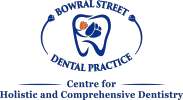
How often should I floss?
Are electric toothbrushes better than manual brushes?
My child’s baby teeth have cavities. Should they be filled?
What should I do if a tooth gets knocked out in an accident?
What causes teeth to decay?
Tooth decay, also known as a cavity, occurs when bacteria living in your mouth make acid that begins to eat away at your teeth. Untreated tooth decay can cause infection, extreme pain and the loss of the tooth. The decay process begins with unnoticeable damage to the enamel of your teeth and then steadily progresses to deeper layers of the tooth, eventually leading to the pulp. The pulp of your teeth contains highly-sensitive blood vessels and nerves.
Proper oral hygiene can reduce decay significantly, and includes brushing your teeth regularly, flossing regularly and brushing your tongue. If possible, brush your teeth twice a day – morning and night.
The top causes of tooth decay include: Poor Oral Hygiene, Improper Nutrition, Sugary Foods, Acidic Foods and Drinks, Dry Mouth Issues, Tooth Grinding, Genetics, Age and Avoiding the Dentist.
